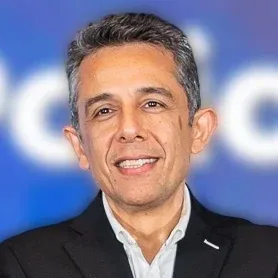What does venture capital want from policymakers in Africa? A lot. And fast.
Earlier this week, as we concluded our field work comprising a comprehensive range of in-depth conversations with senior local, regional, and global private capital providers, who currently invest in Africa-based startups, it became amply clear what tasks lie ahead for policymakers in order to attract more international venture capital to their countries.
The good news – VC and other growth stage investors are keen to increase their investment allocations to Africa. At the same time, they seek greater policy intervention and government urgency in developing core infrastructure.
This article highlights six major areas of opportunity that can potentially accelerate flow of international venture capital into African nations.
1. Digital ID
This now is fundamental to national and economic progress anywhere. Africa is no exception. In a digital-first world, digital IDs are the rails which allow capital-funded innovation to reliably reach every citizen in every corner. It makes scaling for startups easier. That in-turn creates enterprise value faster, which then attracts more investor capital, especially at a much earlier and the more critical stage of a startup’s journey. Digital IDs for citizens are now synonymous with an upward ‘economic growth spiral’.
For example, India’s Aadhar stack has successfully delivered digital IDs to 1.4 Billion people. That has not only transformed India, but attracted unprecedented capital inflows as startups began embedding and building with and around the Aadhar ID stack to fully harness India’s population-scale opportunity. Sub-Saharan Africa is home to one-half of the total global population without a national ID (c. 1.2 billion people) while only accounting for 1/6th of the world’s population.
2. Policy consistency
Policy differences across African countries when topped with often small country-level population and economies, make it difficult for a promising new solution that is developed in any one country on the continent to be ported and launched in others without significant rework. These policy differences ultimately hinder the entire continent from fully leveraging its ‘collective scale’ and opportunity size.
Hence, if the TAM (Total Addressable Market) remains fragmented to each country’s own small size, capital inflow too remains small. But if the continent pushes itself towards policy consistency, the total addressable market suddenly multiplies, and becomes more attractive to investors.
It is only fair to say that an EU-like political union for African nations is an unlikely solution, perhaps even unnecessary, but an EU-Lite ‘policy union’ across countries in Africa is a possible approach. There are already some green shoot pan-African collaborations which are addressing this need; Pan-African Payment and Settlement System (PAPSS), and African Continental Free Trade Agreement (AfCFTA) protocol on digital trade.
Suffice to add that at least those countries in the continent that agree to participate in such policy harmonisation / collaboration will likely also first reap the rewards of greater FDI inflows, and faster.
3. Policy clarity
Policy clarity too is currently insufficient, mostly even non-existent in many African nations. This challenge is more pronounced with when it comes to key drivers of digitalisation like – data privacy, data localisation, data sovereignty, cloud computing, amongst others.
Policy clarity is like oxygen to the certainty that capital providers always look for. After all, they take real risk with the money they invest and for the long-term (typical VC investment time horizons are 8-10 years long). No capital provider wants to know 5 years on, after investing large sums and having created real enterprise value, that a clarification / change of a basic policy suddenly nullifies (destroys) all that value. The overnight change to equity settlement days from T+5 to T+3 cycle in 2015 in Uganda which caused havoc in the capital markets is still fresh in investor minds.
Lack of clarity directly also limits the size, frequency, and repetitiveness of capital inflows. Of the 54 countries on the continent, Kenya, South Africa, Nigeria & Egypt, are largely the only notable exceptions with relative policy clarity. In 2022, Nigeria led in terms of VC funding with $1.2Billion received, followed closely by Kenya at $1.1Billion, Egypt and South Africa with $820Million and $555Million, respectively.
4. Talent
The global Think Tank Brookings late last year said “… with African youths’ increased interest in working for international companies, Africa’s 450 million working-age individuals could help address the global tech talent shortage.”
But a report by African Development Bank forecasted a significant shortage of technology talent within Africa for itself, with an estimated 4 million new technology jobs expected to be created by 2025. Africa is likely to have enough skilled professionals to fill only 50% of those roles.
One major African entrepreneur we interviewed has a 300+ software development team in Vietnam. It is amply clear that Africa needs to invest more in the area of tech talent development, and do so urgently.
5. Shallow capital markets
Broadly, African stock exchanges are still characterised as being illiquid and highly fragmented and as operating under weak regulatory environments as noted in a 2019 CFA Institute paper. But the region is attempting to accelerate cross-border connectivity to stimulate trading and liquidity, and attract more international investment. Amongst issues that need resolution include multiple CSDs (central securities depositories) at local market level. This not only is inefficient but also expensive.
A bold new policy promoting digitalisation and connectivity across stock exchanges is only one highly anticipated upgrade. Stock exchanges of Casablanca, Egypt, Johannesburg, Nairobi, Nigeria, Mauritius and one other have even together signed a contract to procure an order-routing system.
More such steps are needed, and fast.
6. Financial inclusion
Africa has over 700 million mobile wallets, and about 450 million bank accounts. However, access to formal credit remains severely constrained due to poor credit infrastructure and the slowly evolving appetite of financial services players, especially traditional banks. Financial inclusion still widely remains a success in the bigger countries, for example, Kenya, Nigeria, Egypt.
Mobile money remains one of the most important contributions of new-age FinTech entrepreneurs that has contributed directly to bring more into the formal financial ecosystem. However, the absence of legislative frameworks to foster innovation in the sector is a major issue for FinTechs in Africa. Despite this, blockchain peer-to-peer loans are gaining traction in Africa. This is encouraging.
Exploring the opportunities
The Capital Meets Policy Dialogue, Africa Chapter is scheduled to take place as a curtain-raiser to the Inclusive FinTech Forum on 20 June 2023 in Kigali, Rwanda, with the rest of the Forum continuing through to 22 June. In addition to the opportunities highlighted above, the Dialogue will also dive into equally-important growth drivers, such as accelerating the growth of African founders.
To join the Dialogue, please register here.
Want to continue reading? Subscribe today.
You've read all your free articles for this month! Subscribe now to enjoy full access to our content.
Digital Monthly
£8.00 / month
Receive full unlimited access to our articles, opinions, podcasts and more.
Digital Yearly
£70.00 / year
Our best value offer - save £26 and gain access to all of our digital content for an entire year!


 Sign in with Google
Sign in with Google 



